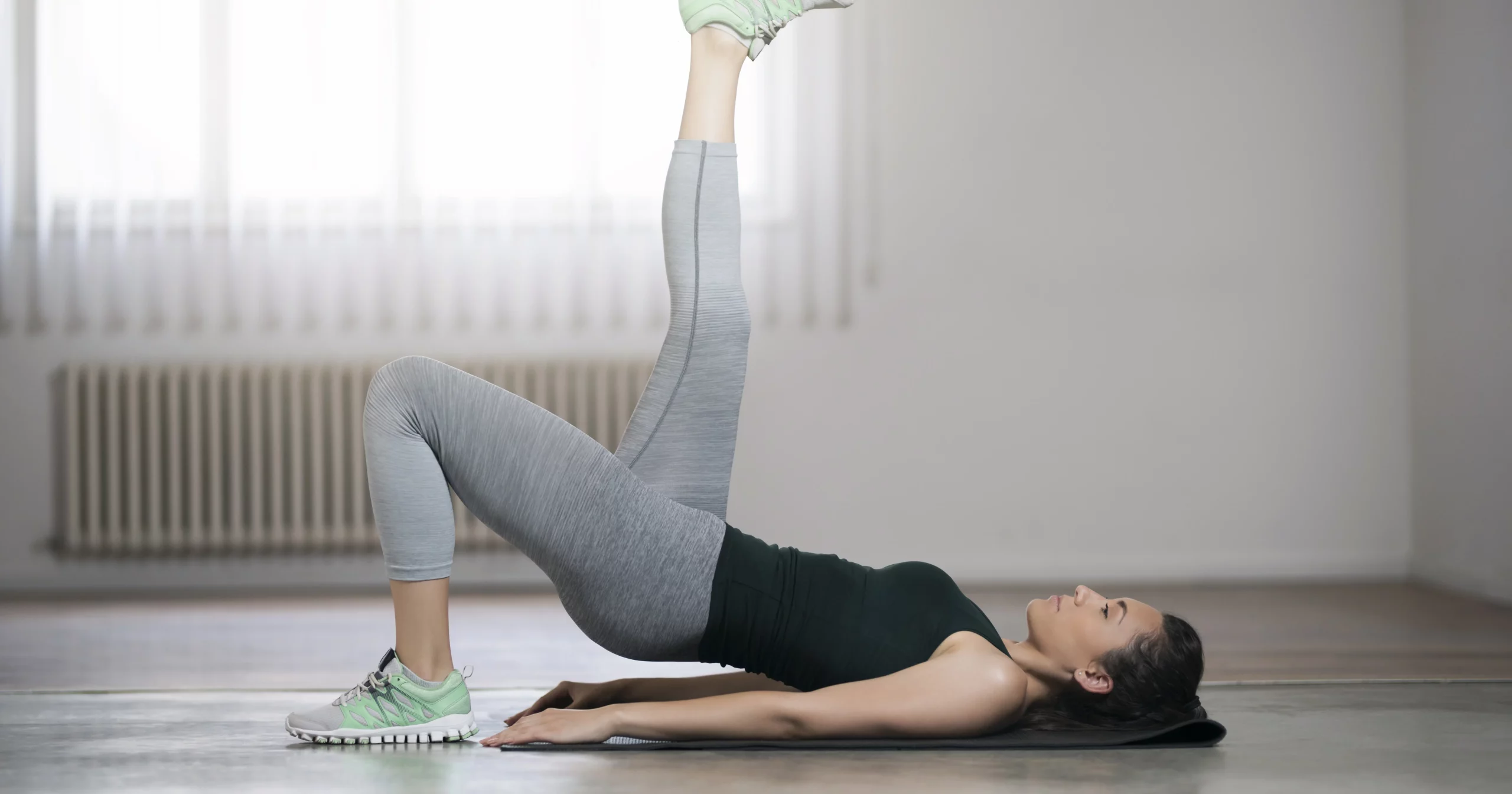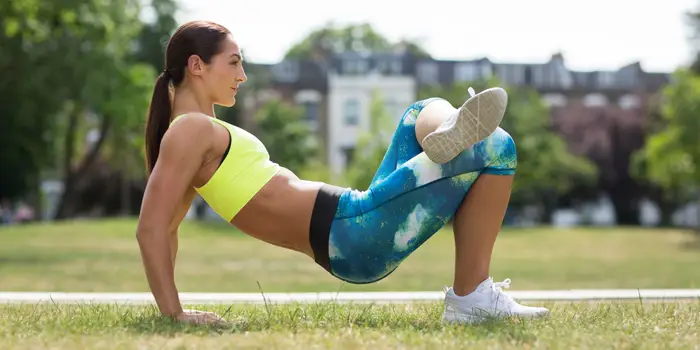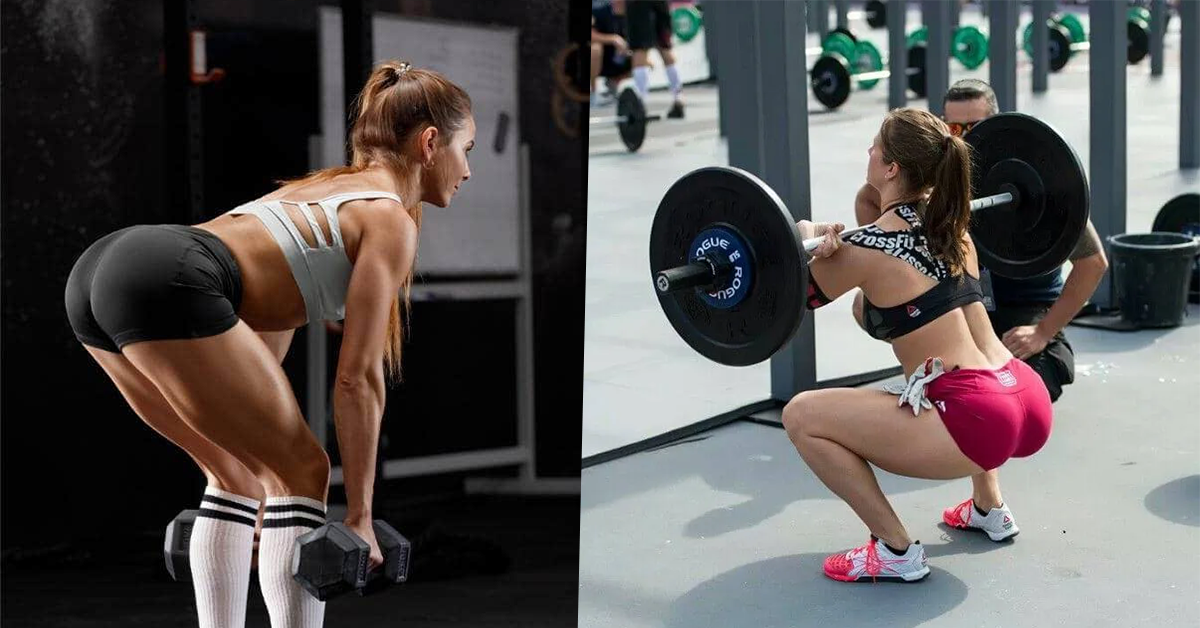Looking for great exercises to make your glutes stronger? You’re in the right spot! Strong glutes are key for a strong body. They’re not just for looking good, but also for keeping you stable and preventing injuries. This guide has 11 of the best exercises for glutes. They’re easy, don’t need special equipment, and you can do them anywhere – at home or in the gym.

Contents
11 Best Exercises for Glutes
Here are the top 11 exercises that target and strengthen your glutes:
- Squats: This classic lower body exercise engages your glutes, hamstrings, and quadriceps, making it an excellent choice for building overall lower body strength.
- Deadlifts: Deadlifts primarily target your hamstrings and lower back, but they also work your glutes by providing a strong hip extension movement.
- Hip Thrusts: This exercise specifically targets your glutes and is known for its ability to activate the muscles effectively. Elevating your feet on a bench or step can increase the intensity.
- Lunges: Lunges are a versatile exercise that target your glutes, quads, and hamstrings. You can perform them with bodyweight or add dumbbells or a barbell for added resistance.
- Step-ups: Step-ups are great for targeting your glutes, hamstrings, and quads. Use a step or a bench and step up with one leg at a time, focusing on the glute activation during the movement.

- Glute Bridges: Similar to hip thrusts, glute bridges are an effective exercise that isolates and activates the glutes. They can be performed with or without weights.
- Bulgarian Split Squats: This single-leg exercise is excellent for targeting your glutes and quads. It also challenges your balance and stability.
- Cable Kickbacks: Utilizing the cable machine, kickbacks allow you to isolate and target your glutes effectively. Keep your movements controlled and focus on squeezing your glutes with each rep.
- Romanian Deadlifts: This variation of the deadlift targets your glutes, hamstrings, and lower back. It involves a hip hinge movement with a focus on maintaining tension in your glutes throughout.
- Glute-Ham Raises: Glute-ham raises are challenging but highly effective for targeting your glutes, hamstrings, and lower back. You can perform them using a glute-ham raise machine or with a resistance band.
- Sumo Deadlifts: These wide-stance deadlifts focus on your inner thighs and glutes. By taking a wider stance and using a sumo grip on the barbell, you can target your glutes more effectively.
Why Strong Glutes Are Important?
Let’s find out why having strong glutes is so important.
1. Enhanced Mobility:
The glute muscles are one of the largest muscle groups in the body, and they are responsible for powering many movements. Strong glutes contribute to improved mobility, allowing you to perform activities such as walking, running, jumping, and climbing stairs with greater ease and efficiency.
2. Improved Posture and Stability:
Weak glutes can lead to poor posture and instability, which may result in various musculoskeletal issues. When your glutes are strong and activated, they help support your spine and pelvis, promoting good posture and reducing the risk of back pain and discomfort.
3. Injury Prevention:
Strong and well-developed glutes can help prevent injuries, particularly in the lower body. By properly aligning the pelvis and supporting the hips and knees, strong glutes can offset stress on these joints and reduce the risk of injuries such as knee pain, IT band syndrome, and lower back strain.
4. Enhanced Athletic Performance:
Whether you’re an athlete or a fitness enthusiast, having strong glutes can significantly improve your athletic performance. Your glute muscles are involved in various movements, including jumping, sprinting, and changing direction. Strong glutes provide power and stability, helping you perform explosive movements more efficiently and with less risk of injury.
5. Better Functional Movement:
Functional movements are those that mimic activities of daily life, such as bending, lifting, and carrying. Strong glutes are essential for these movements, as they provide the strength and stability needed to perform these tasks safely and efficiently. Having strong glutes can make your everyday activities much easier and reduce the risk of strain or injury.
Factors to Consider When Targeting the Glutes
When it comes to targeting and strengthening the glutes, there are a few factors you should consider. These factors can help ensure that you are maximizing your glute strength and development, and ultimately getting the most out of your lower body workouts. Here are some key considerations:

- Targeting all three parts of the glute muscle group: To truly optimize your glute strength and development, it’s important to target all three parts of the glute muscle group – the gluteus maximus, gluteus medius, and gluteus minimus. This will ensure that each part is activated equally and efficiently.
- Training age: Your training age, or level of experience, is an important factor to consider. If you’re a beginner, it’s crucial to master foundational exercises like the box squat, hip hinge, glute bridge, and goblet squat before adding more load. Building a solid foundation is key to prevent injuries and ensure proper form.
- Logistics and equipment availability: Consider the equipment you have access to when planning your glute-targeted workouts. While exercises like band hip thrusts, pendulum quadruped hip extensions, and horizontal back extensions are effective for targeting the glutes, not all lifters have access to specialized equipment like a Hip Thruster, reverse hyper, or glute ham developer. Opt for exercises that can be performed with the equipment you have available.
Frequently Asked Questions
What is the most effective glute exercise?
The most effective glute exercise includes barbell hip thrust, step up, reverse hyper, Romanian deadlift, curtsy lunge, sprinter position dumbbell Bulgarian split squats, single-leg hip thrust, and dumbbell frog press.
How long does it take to grow glutes?
It takes consistent effort both in and out of the gym. Minor changes can be noticed within 4-6 weeks, while significant progress appears within 3-6 months. To fully transform your glutes, stay dedicated for 1-2 years.
Why are glutes so hard to grow?
Glutes can be hard to grow due to inactivity and underactive glutes from a sedentary lifestyle. Difficulty in firing the muscles during training could hinder glute development.

Hello, I’m Ravindra. Over the years, I’ve immersed myself deeply into the world of fitness and health, transforming both my body and mind. Writing has allowed me to share my journey, insights, and expertise with those just starting out and seasoned fitness enthusiasts alike. Beyond just routines and diets, I believe in inspiring others to adopt a holistic approach to well-being.
